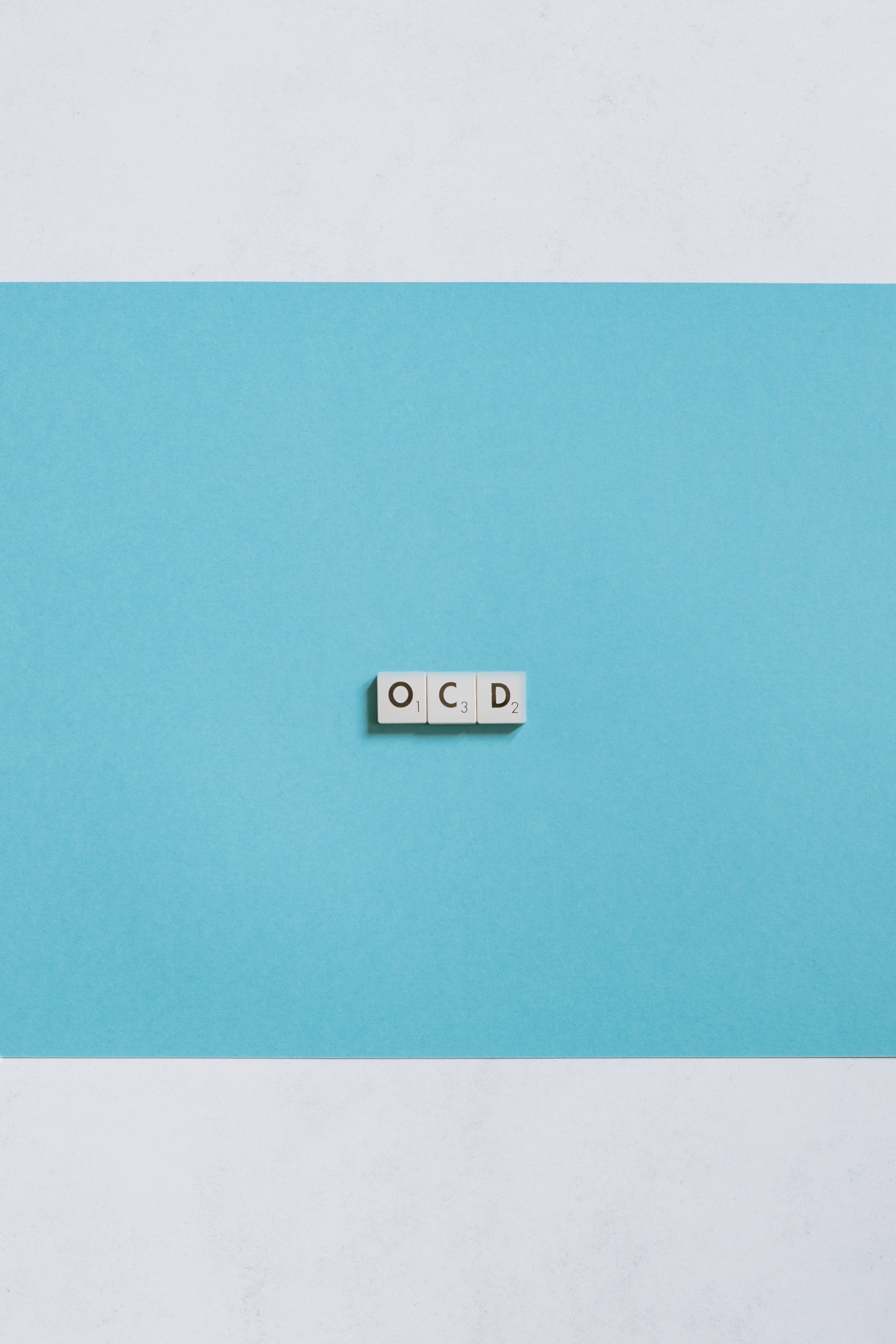OCD Therapist In New York
Are you diagnosed with OCD (Obsessive Compulsive Disorder)? Do you have a family member or a loved one struggling with OCD? Living with OCD can be challenging on a daily basis. Finding treatment from the best OCD therapist could be a great start. Our OCD therapists in NYC at Mind Connections are here to help you to understand and effectively treat OCD.
What is Obsessive-Compulsive Disorder (OCD)?
Obsessive-Compulsive Disorder (OCD) consumes the mind and lives of people who have it. OCD causes sufferers to have intrusive thoughts. OCD intrusive thoughts are unwanted thoughts that someone tries to avoid. Notably, these thoughts are violent, sexual, or explicit. In light of this, people with OCD feel shame and fear.
In order to ease their anxious or unwanted thoughts, people will complete compulsions. Compulsions are repetitive and specific actions performed by someone with OCD. If you are looking to learn more about OCD and find the best OCD Therapist NYC has to offer, keep reading!
Why is OCD so Upsetting?
According to the ADAA, OCD affects 2.2 million adults. Even though this disorder affects many people, people with OCD often feel alone. People with OCD do not want to have these repeated thoughts and find them disturbing.
In most cases, they realize that these thoughts don’t make any sense. Intense and uncomfortable feelings such as fear, disgust, or doubt typically accompany OCD. Therefore, as an attempt to get rid of the obsessions and/or decrease their distress, people engage in compulsive behaviors.
Types of OCD from an OCD Therapist NYC

- Contamination OCD
- Harm OCD
- Relationship OCD (ROCD)
- Pedophilia OCD (POCD)
- Symmetry OCD
- Pure O OCD
- Magical Thinking OCD
- Religious or Scrupulosity OCD
- Sexual Orientation OCD (SO-OCD) or Homosexual OCD (HOCD)
- Just right (Perfectionism) OCD
Symptoms of common Obsessions
Contamination OCD
- People with this obsession are fearful of getting sick, dirty, or harmed by things they find dangerous to consume or be around.
- These fears include fear of germs, viruses, and diseases (e.g., HIV, AIDS, Herpes, or COVID), body fluids, dirt, household chemicals, and environmental contaminants
Loss of Control
- People with this obsession fear losing control and hurting themselves or others. Similarly, they are afraid of breaking the law and doing something illegal like stealing.
- These fears include fear of violent images, stealing, blurting out something insulting, or harming themselves or others impulsively
Perfectionism OCD
- People with this obsession want everything to be and look in place. They feel uncomfortable and distressed when disorganization occurs.
- These obsessions are centered around exactness, evenness, or symmetry.
- They also fear losing or forgetting important items or information
Harming Self or Others (Harm OCD)
- People with this obsession, comparatively to the “losing control,” fear of causing harm or danger to others.
- They usually get violent thoughts when angry
- This obsession causes fear over starting fires, burglary, forgetting a “dangerous” object is plugged in like a flat iron or hairdryer
- They also fear hurting their loved ones, a stranger.
- Often they worry about harming someone in the past and “forgetting” about it. (e.g., saying something that “caused” a coworker to get fired)
Intrusive Sexual Thoughts (OCD sexually intrusive thoughts)
- People with this obsession can fear many things.
- Some people worry over their sexual orientation (OCD obsessive thoughts examples: fear of being in denial of being gay if you self identify as straight) (OCD sexuality)
- Others fear incest, forbidden/perverse sexual thoughts, images, aggressive sexual behaviors towards others (e.g., rape); and harming children
Morality or Religious OCD
- People with this obsession constantly fear that they are going against their religious or moral rules.
- They obsess over offending God, their morality, choosing between right or wrong, or contributing to global harm.
Symptoms of Common Compulsions
OCD Cleaning
People who have contamination obsession usually try and feel better by continuously washing and cleaning themselves. They will excessively wash their hands, shower, bathe, and brush their teeth. Furthermore, to escape their worries of getting sick they will often try and avoid hospitals, sick loved ones, or any place they feel will have a lot of germs.
Checking

A checking compulsion is usually together with obsessions like harm. These people are so afraid of harming themselves or others. This will cause them to check over their actions to ensure no harm will happen. For example, they will check if the door is locked, the oven is shut, the flat iron is unplugged repetitively.
Likewise, people with perfection obsessions will check over their work many times. By the same token, the people will check over their assignments, mentally review their actions, and question themselves over and over again checking for any errors.
Repetitive Actions
In light of checking compulsions, comes repeating compulsions. A repeating compulsion is coupled with a perfection obsession, as well. The person will reread, rewrite or repeat actions because they “do not feel right” or make them uncomfortable. It can also be called “just right ocd.” To feel comfort once more, they will repeat routine activities or body movements (e.g., blinking, touching) until it “feels right.”
Internal Compulsions
Many times, people with OCD seem superstitious. They consider certain numbers to be unsafe and get anxious when they come across them. This can cause the person to continue counting so they will end at safe or good numbers.
People with OCD also constantly pray to prevent harm, attempt to cancel or undo bad words and engage in mental reviewing to avoid negative consequences. Mental reviewing is when someone thinks back to their memories and actions over and over again. This can cause the person much distress and confusion. Many times, this will end in their memories being tampered with. They worry about their memories so much that they will convince themselves something happened when it didn’t or fail to know what is real or not.
Other Compulsions
Other types of OCD compulsions include:
- Putting things (e.g. household items) in order or arranging them until it feels right
- Asking for reassurance
- Avoiding things, numbers, shapes, and situations to reduce triggers to compulsion
More Questions about OCD? We got answers.
Where can I find OCD Therapy Near Me?
If you’ve been googling “the best ocd therapist near me,” look no further! Mind Connections offers effective and life-changing ocd therapy online! Obsessive compulsive disorder treatment can be given through online sessions with a Mind Connections trained therapist. A therapist can offer support, give you the tools needed to take control of your OCD, and live a happier life! If you live anywhere in New York, give us a call and have a FREE 15 minute phone consultation!
Does OCD Therapy Work?
Psychotherapy for OCD has been proven to help many people with OCD. Therapy techniques help an OCD sufferer face the thoughts that they have been too scared or disturnbed to handle. A therapist is a trained professional that helps you through your most upsetting and fearful thoughts. OCD thoughts treatment allows the person to feel free! It feels good telling someone your problems and being understood and supported. Talking about OCD helps bring it to light and fight it. When it is pushed to the side and untreated, people with OCD can be at risk of negatively impacting their mental wellness.
What is the Best Treatment for OCD?
You may be wondering what OCD therapy techniques are the best? OCD cognitive behavioral therapy can help along with Exposure and Response Prevention Therapy (ERP) and Acceptance and Commitment Therapy (ACT).
CBT for OCD allows someone to look at and examine their intrusive thoughts in a more realistic way. The person can learn to not take their thoughts so seriously and show themselves that the thoughts have no backing. ERP therapy involves the client being exposed to their triggers and learning not to respond with compulsions. Finally, ACT lets an OCD sufferer accept their thoughts and reduce stress around them. ACT helps people connect with and access the meaningful things in their life beyond OCD.
If You Have OCD Remember That…
You are not alone! As mentioned before, over 2.2 million people have OCD in the world. Likely, there is no thought that you have had that has not been thought of by someone else. In times when you feel ashamed or embarrassed about your thoughts, remember that they are just thoughts.
People have OCD intrusive thoughts that invade their minds every day. The difference between those people and people with OCD is that the latter hold onto these thoughts more. Instead of letting them pass and thinking “that thought was strange,” people with OCD question who they are as a person. If they have a violent thought, all of a sudden they are fearful that they will harm others, harm themselves and become terrible people. OCD thoughts are not real!
Try to remember that most of the things people fear most with OCD are what they actually value the most. If you love your family, you may struggle with OCD about harming them. You may have had a violent OCD intrusive thoughts and became so worried that you would hurt your loved ones. Having OCD doesn’t make you a bad person. Most of the time, people with OCD feel like horrible people when in reality they are so disturbed by their violent or inappropriate thoughts that they would do anything to stop them. This is where their obsessions and compulsions come in.
OCD Therapist NYC
Psychotherapy works effectively to treat OCD. Our team at Mind Connections helps you deal with your intrusive thoughts and reduce your need to complete compulsions.
Are you looking for the best OCD Therapist NYC has to offer? Look no further! Our therapists are here to listen to you without judgment. They are educated on all factors of OCD and encourage clients to share their inner thoughts. If they do so, they will be met with a safe space where they will receive support and tools to combat OCD.
Besides medications, the most effective OCD treatment methods often include:
- ACT (Acceptance Commitment Therapy)
- ERP (Exposure and Response Prevention)
- CBT (Cognitive Behavioral Therapy)
- Online Therapy or Tele-therapy
- Group Therapy
- Family Therapy
- Couples Therapy
- Psychodynamic
Call us free for 15 minutes or schedule your online video therapy to get an evaluation and the treatment from some of the best OCD Therapist NYC has to offer!

